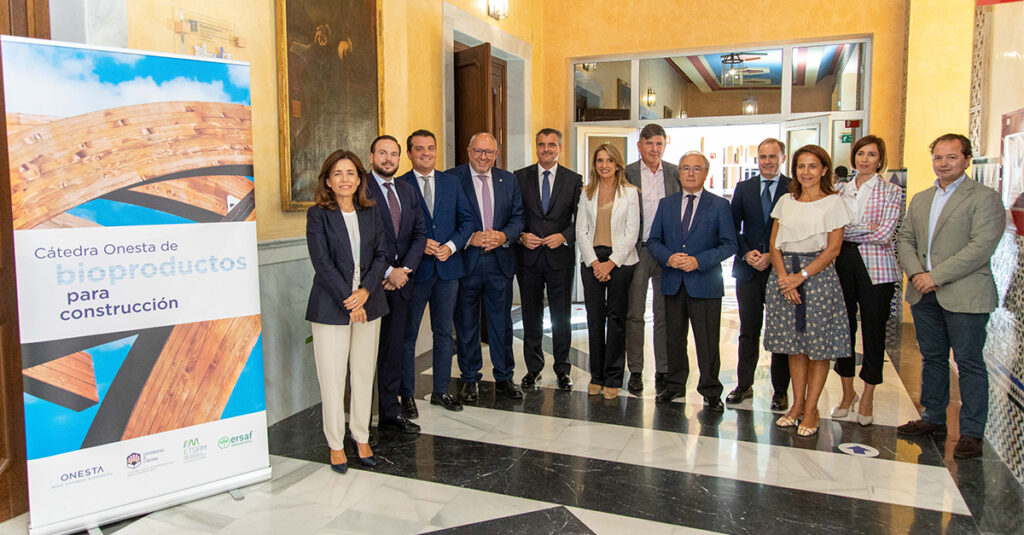NEWS & EVENTS / PROJECTS / Taller Internacional InData sobre Armonización de Bases de Datos de EPDs
News & Events
International experts meet at UCO to discuss harmonisation of environmental building databases.
International InData Workshop on Harmonization of EPDs Databases, organised by the international InData group and promoted by ETSIAM, University of Cordoba, Instituto de Ciencias de la Construcción Eduardo Torroja from CSIC and ONESTA.
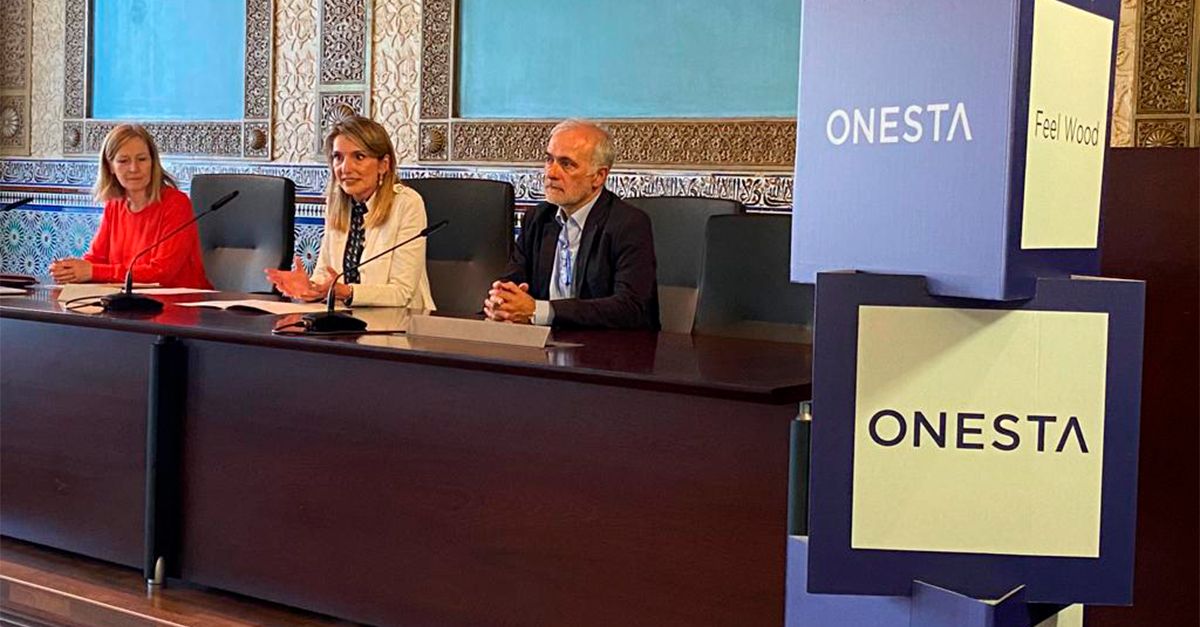
On 23rd March 2023, organised by the international group InData (International open data network for sustainable construction) and promoted by the Escuela Técnica Superior de Ingeniería Agronómica y de Montes ETSIAM of the University of Córdoba, the Instituto de Ciencias de la Construcción Eduardo Torroja of the CSIC and the company ONESTA, a workshop entitled: International InData Workshop on Harmonization of EPDs Databases was held at the Rectorate of the University of Córdoba.
During the event, European experts related to sustainable construction met to discuss the harmonisation of Environmental Product Declarations (EPDs) databases.
The meeting began with a welcome by Rosa Gallardo, Director of the ETSIAM, who pointed out the commitment of this university to environmental issues, as well as the importance of Cordoba being the city where the 21st meeting of this network will be held.
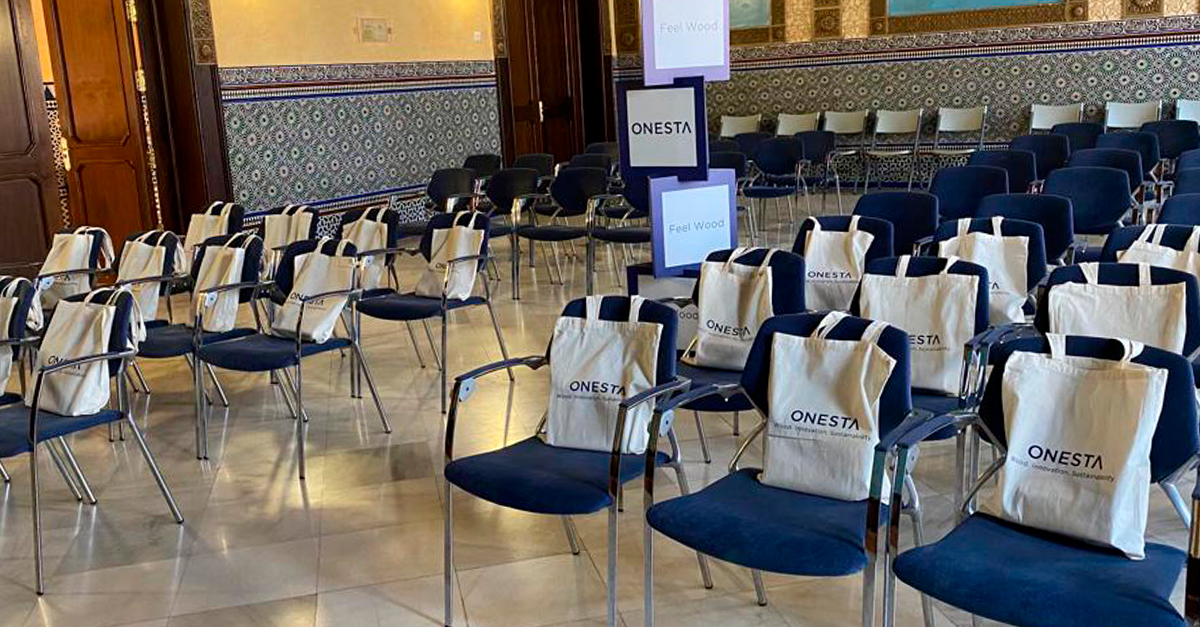
Tanja Brockmann from the German Federal Research Institute for Construction, Urbanism and Spatial Development and José Antonio Tenorio from the Instituto de Ciencias de la Construcción Eduardo Torroja (IETcc CSIC) introduced the session. Tanja Brockmann recalled that the Indata working group was created in 2015 as an informal, non-profit working group to establish an international data network based on giving a structure to environmental product declarations (EPDs) for life cycle analysis,using a common open source format.
It currently involves experts from ministries, research centres, universities, companies and environmental programmes from Austria, Denmark, France, Germany, Italy, the Netherlands, Norway, Spain, Sweden, the United Kingdom and the United Kingdom. Among InData’s main achievements is the promotion of a machine-readable data management system, which is already used by almost all European DAPs.
Tenorio, from CSIC, explained the importance of the meeting by bringing together three points of view through three panels:
- The vision of the country through the technical regulation of MITMA and the Spanish Climate Change Office OECC.
- InData’s vision of knowledge and accumulated experience.
- The European vision.
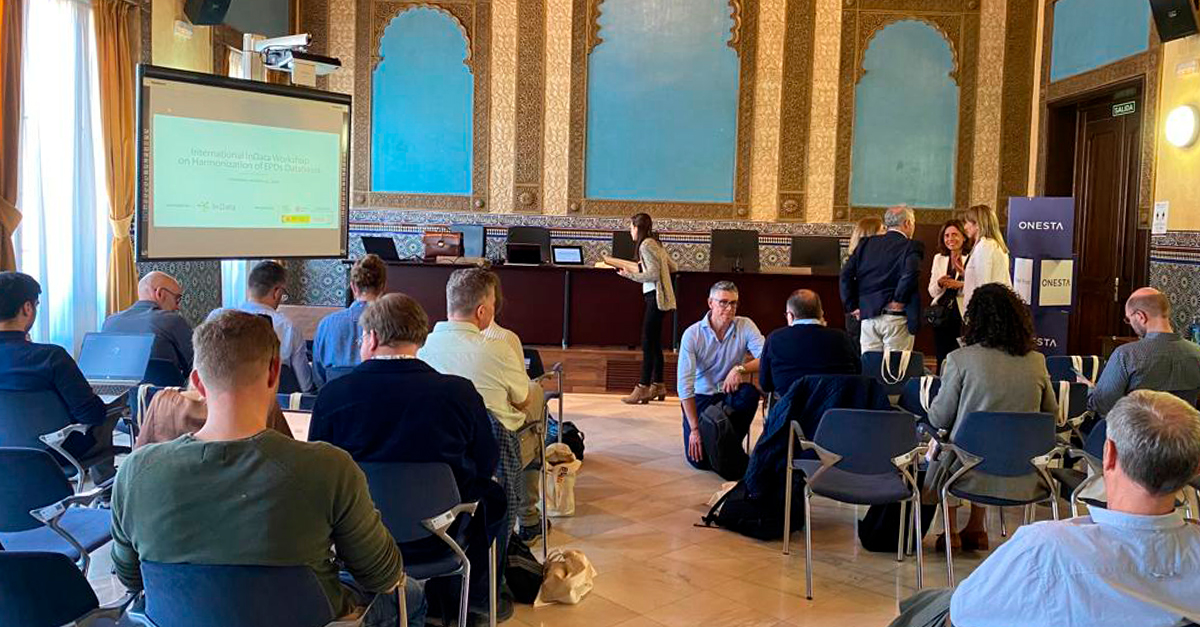
Session 1 – Spanish perspective
The session was opened by the presentation of the Ministry of Transport, Mobility and Urban Agenda (MITMA) of the Spanish Government, with the presence of Juan Queipo Llano. The speaker remarked that work is underway to include embedded carbon in buildings in the regulations in the coming years, complementary to operational carbon, “with a view to the objectives of complete decarbonisation by 2050”.
The focus of footprint reduction will be on new and existing buildings and for administration buildings. Queipo de Llano gave a preview of the different methods, strategies and decisions needed to address these measures. With the presence of the Spanish Climate Change Office (OECC) of the Spanish Government, Belén Vitón presented the carbon footprint and offsetting scheme in Spain and its future evolution.
Vitón stressed the need for reliable databases for the regulatory framework and the objectives of the OECC for this, highlighting the need for a generic product base that should be, in the opinion of the OECC, open, public and at national level.
After the Spanish vision of the administration, the speeches continued, giving an outline of the perspectives of the European members as a whole.
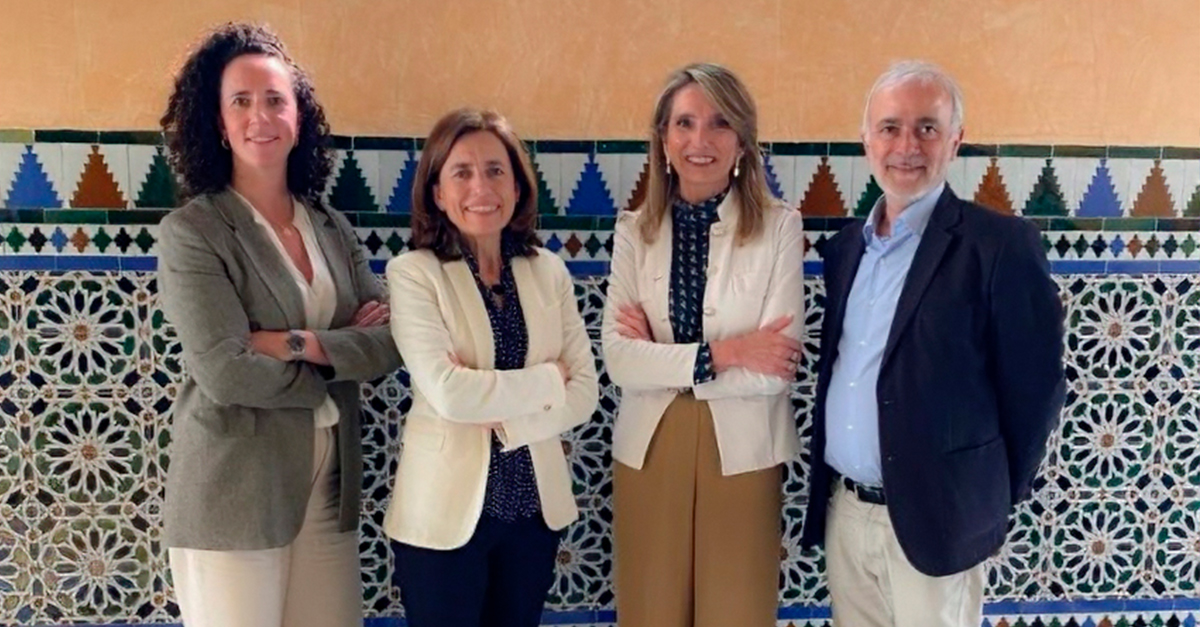
Session 2 – InData and the current situation
Olivers Kusche, independent consultant at Okworx Digital Solutions in Germany, and a member of InData, gave an overview of its history, highlighting the important milestones achieved. “In the beginning there was no machine-readable data in an automated way. InData’s vision has contributed to the change, now there are 5597 specific products declared in ECO Portal and 1132 representative and generic data in Ökobaudat, all under one format and a common search engine. Progress continues to be made towards full digitisation of the data, allowing free export and unlimited use”.
The presentation was followed by Sofia Kubalski, representative of the programme manager, EPD International from Sweden. Kubalski, among other messages, stressed the importance of flexible access to data, both in terms of data import and multiple output (export) formats that allow the data to be used. “APIs make the requirements clearer”.
As one of the Spanish members of InData, José Antonio Tenorio, Senior Scientist at IETcc. CSIC, took the floor with his presentation under the title “Generic datasets in EPD databases”. The CSIC researcher insisted on the need and development of a greater number of EPDs, especially for products that are commercialised in the Spanish market, and stressed the opportunity to establish generic values with which to calculate during the design of the building, in order to establish an initial global reference level. “It is essential that the assessment of the environmental impacts of buildings is done from the early stages of the construction process so that it can be taken into account in the design of the building. Otherwise it will simply be a valuation tool for constructed buildings”.
This panel concluded with the online presentation of Martin Romby Hauge, Technical Director of Gaiup from Denmark with his talk on “Automated and real time LCA of buildings from BIM models”, showing the development of a new software that aims to understand, improve and document the climate impact, saving time, resources and also CO2 emissions.
Session 3 – European and international perspective
The third session featured three interventions of great importance in their nuances and novelties. Óscar Nieto, responsible for policies of the European Commission, in his presentation “CE Marking and the harmonisation of the Declaration of Performance (DoP)”, explained the main new features that will bring the revision of the regulation of construction products and among them, referring to this area, the inclusion of the environmental values to be included in the declaration of performance of the products.
What is currently voluntary will become compulsory. Nieto explained the need for a global database to collect the values of the CE marking, including environmental values.
From the Spanish Association for Standardisation (UNE), Aitor Aragón, responsible for standardisation committees, presented the European D^2EPC project and highlighted the importance of the UNE-EN ISO 22057:2022 standard on BIM data templates for EPDs and the digital declaration of performance (Smart CE), as well as its necessary compatibility with the ILCD+EPD format where the fields for digitising EPDs are developed.
To conclude the day’s presentations, Martin Erlandsson, Deputy Director of the Swedish Environmental Research Institute (IVL) in Sweden, offered another important focus of ISO 22057, such as its powerful dictionary to describe the characteristics and use identical classification of construction products. Each panel was followed by a rich discussion. The experts who attended the workshop contributed, from different corporations and geographic areas, guidelines that seek to set a single path for the homogenisation and development of environmental data for more sustainable building.
The workshop was held in the Mudejar room of the Rectorate of the University of Cordoba, promoter of the event together with the CSIC, and was sponsored by ONESTA, a corporation that is highly involved in environmental protection and collaborates in research support work with the University of Cordoba.
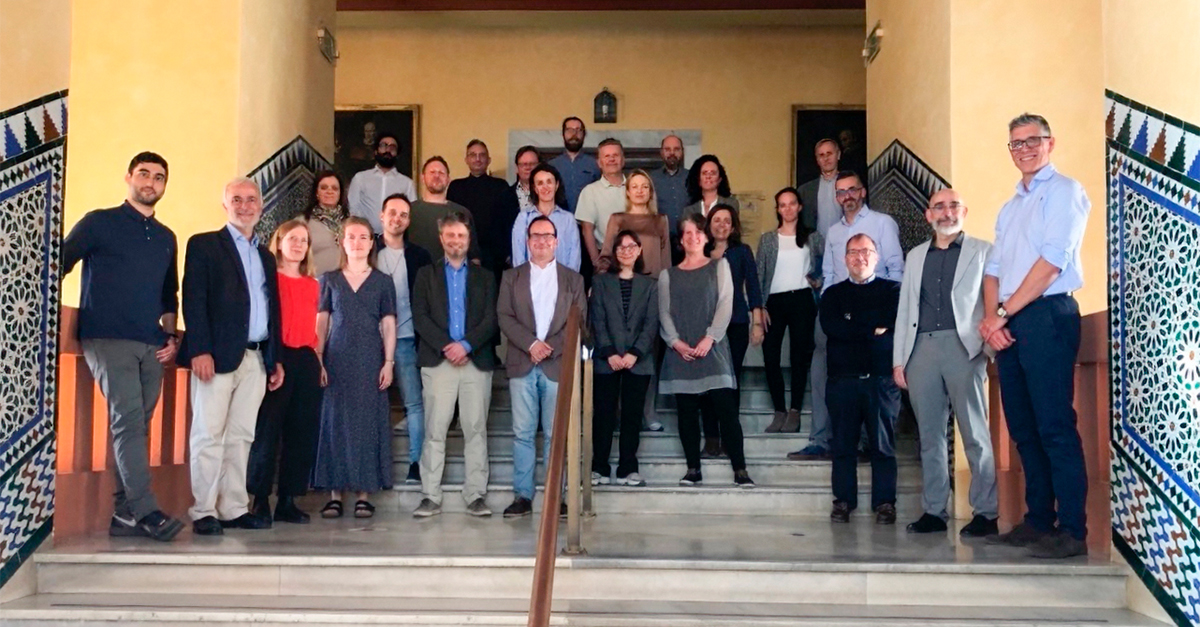
From left to right: José Lucas, José Antonio Tenorio, Tanja Brockmann, Teresa Garnica, Emilie Brisson Stapel, Emanuele Durante, Alberto Espina, Robert Spang, Oliver Kusche, Ugo Pannuti, Martin Erlandsson, Juan Queipo de Llano, Sheila Otero, Stefan Zwerenz, Håkon Hauan, Carmela Mansi, Sofía Kubalski, Alex Röder, Hildegund Figl, Marta Sánchez, Marta Conde, Belén Vitón, Enrique Larrumbide, Aitor Aragón, Arturo Alarcón, Oscar Nieto, Carlos Alonso.


